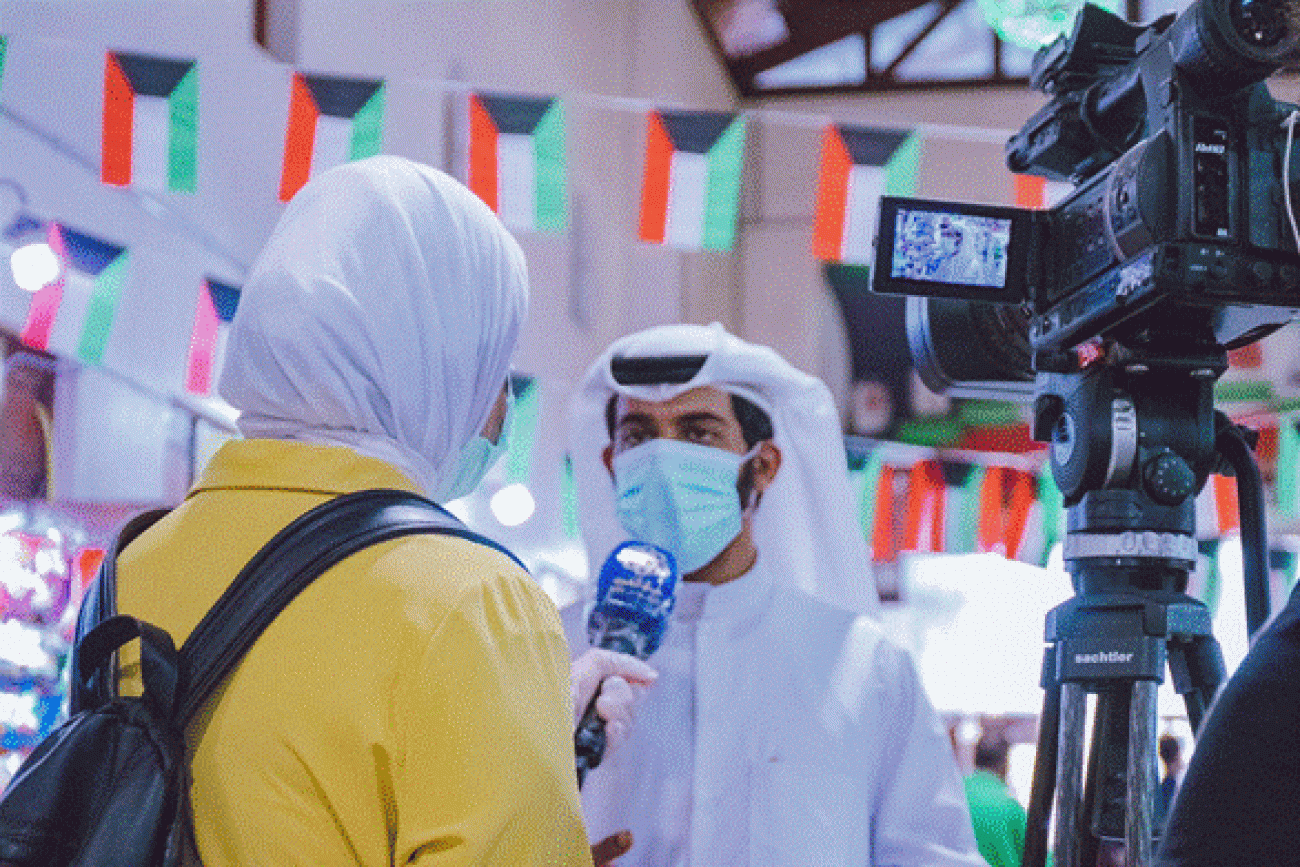Gender Sensitivity Media Training Workshop:

Gender Mainstreaming
During the peak of the pandemic and in response to disproportionated media coverage that did not consider the factors that affect women with regards to the pandemic, lockdown and domestic care, the United Nations Development Programme (UNDP) and the UNWomen organized a virtual “Gender Sensitivity Media” training in partnership with the General Secretariat for the Supreme Council of Planning and Development (GSSCPD) and the Kuwait University Women’s Research and Studies Center.
The Secretary General of the General Secretariat of the Supreme Council for Planning and Development, Dr. Khaled Mahdi, affirmed the importance of promoting the production of media content that is more comprehensive and balanced for women, which is especially important in light of the COVID-19 pandemic that occupied large areas of media coverage in Kuwait and the world.
Dr. Rula Alfarra, a renowned media professional in Kuwait led the training and challenged the participants to adopt an approach that will represent all demographics in storytelling in Kuwait. This helped in enhancing the knowledge and skills of media persons from different outlets to provide a diverse, balanced and gender sensitive coverage and reporting within the context of COVID-19.
The approach of Dr. Alfarra was to help improve the quality of media work from a gender perspective and helped the different media outlets to achieve a gender balance in their production of content and avoid gender bias and discrimination in their media coverage.
Several male participants were surprised to learn on the microaggressions in some terminology and reporting behaviors. This led to the collective discussion surrounding the “do’s and don’ts” of gender reporting issues, especially with regards to the issue of violence against women.
A quote from one of the participants, referring to the substitution of “survivor” instead of “victim” when discussing domestic abuse: “We have grown accustomed to daily seeing some things in the media daily that we are not conscious of how much damaging they can be for women, changing the terms used can have a great impact”.
During the workshop, UNDP and UNWomen showcased how they have addressed the gender mainstreaming and gender sensitivity issues within their respective organizations and provided guidelines that can be implemented in other organizations which was well received by the participants, as it encouraged them to share their own examples to develop tools that can be used in the Kuwaiti context.
Dr. Lubna Alkazi, Head of the Women’s Research and Studies Center said: “There has been a lot of progression in the field of media for women in Kuwait. But there is still an issue of misrepresentation in the content itself and underrepresentation in the industry,”
Participants also shared samples of their work for constructive feedback by their colleagues to enhance the knowledge exchange and create a community of practice beyond the workshop. Some examples are:
Fatima Altabbakh, TV actress: https://youtu.be/5fJUFaGVnQU
Fahad Alturki, TV producer: https://www.youtube.com/watch?v=xt5C1KfDjUE&feature=youtu.be






